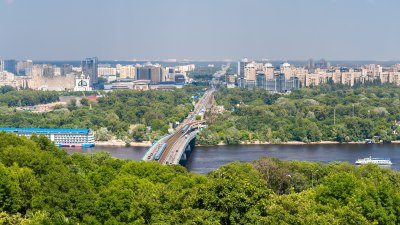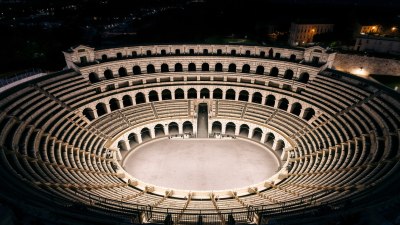How to Experience History Beyond the Museums
Discover engaging ways to explore history outside traditional museums and enhance your cultural understanding.

When one thinks of history, museums often come to mind. However, there are numerous exciting and interactive ways to experience history that extend beyond the conventional confines of museum walls. Understanding history is essential for grasping the present and shaping the future, but exploring it through diverse avenues can provide a much richer experience. In this guide, we will examine various methods to delve into history that engage the senses, spark the imagination, and create lasting memories.
1. Walking Tours
Walking tours are one of the most immersive ways to experience history. Many cities around the world offer guided walking tours that take participants through historic neighborhoods, landmarks, and sites of significance. These tours often highlight local stories, architecture, and the cultural context of the area, providing a deeper understanding than mere observation. You can experience the atmosphere of a city while learning about its pivotal moments and eccentric characters. For example, a historical tour in Boston may guide you through the Freedom Trail, while a tour in Paris could lead you to famous sites like the Notre-Dame Cathedral and Montmartre.
2. Historical Reenactments
Engage your imagination by participating in or witnessing historical reenactments. These events bring history to life by recreating famous battles, cultural traditions, or daily life in past eras. Whether hosted during a festival, a dedicated historical site, or at a National Park, reenactments provide a dynamic experience that includes actors in period costumes and often interactive activities. For instance, visitors to Gettysburg can watch the reenactment of the Battle of Gettysburg and gain insights into the Civil War. This hands-on experience allows participants to appreciate the challenges and triumphs of those who lived before us.
3. Heritage Trails
Heritage trails are curated walking, biking, or driving routes that guide visitors through areas rich in culture and history. These routes typically feature multiple stops at landmarks, points of interest, and points of significance. Whether tracing Indigenous history, industrial development, or immigrant contributions, heritage trails offer a comprehensive view of an area's historical narrative. For example, the Lewis and Clark National Historic Trail spans multiple states, offering insights into the expedition that helped shape the American West. Visitors can explore various terrains and historical contexts while following the same paths that explorers once traversed.
4. Historical Sites and Landmarks
Beyond museums, historical sites and landmarks offer captivating insights into the past. These include battlefields, monuments, preserved homes, and entire villages that showcase how people lived in different eras. Visiting these sites provides context and connection to the events that shaped them. For instance, a trip to the Alamo in Texas allows you to reflect on the struggles of the Texan Revolution, while a visit to Colonial Williamsburg in Virginia immerses you in the 18th century, complete with actors portraying the daily lives of early Americans.
5. Local Events and Festivals
Joining local historical events and cultural festivals can be a fantastic way to engage with history. These gatherings often celebrate significant historical periods or events and frequently involve cuisine, music, and hands-on activities related to that era. Participating in such festivals allows you to experience history beyond just reading or watching—it embraces a deeper connection with the culture. For instance, celebrating Oktoberfest in Munich dives deep into Bavarian traditions and customs while reflecting on 19th-century celebrations that have persisted through the years.
6. Oral Histories and Interviews
Another compelling approach to experiencing history is engaging with oral histories. Telling personal stories and experiences passed down through generations provides invaluable insights into past events through the perspectives of individuals who lived them. Conducting interviews, participating in community history projects, and attending storytelling sessions can uncover rich narratives that might not be found in textbooks. Learning from an elder's tales about their upbringing during a significant historical period creates meaningful connections and emphasizes the human experiences behind historical events.
7. Historical Fiction and Literature
Diving into historical fiction can transport you to different times and places, enabling readers to visualize historical events through vivid storytelling. Novels, biographies, and journals can provide context surrounding historical narratives, leading to a more profound understanding of the era. Through the lens of fictional characters, one explores the emotional, social, and cultural landscapes of the time. Whether reading classics like “War and Peace” or contemporary works like “The Nightingale,” literature serves as a captivating avenue to experience history.
8. Archaeological Sites
Visiting archaeological sites allows you to walk through history as excavated ruins reveal the lifestyles of ancient civilizations. Exploring places such as Pompeii, Machu Picchu, or the Pyramids of Giza unearths the architectural prowess and cultural practices of those who lived long ago. On-site tours often come with knowledgeable guides who can provide context and enlighten visitors about the findings, the excavation process, and the significance of these remains in understanding human history. Searching through layers of history makes the past come alive in profound ways.
9. Virtual Reality and Augmented Reality Experiences
The advancement of technology has opened up new avenues for experiencing history through virtual reality (VR) and augmented reality (AR). Various applications and experiences allow users to simulate historical environments and events, enhancing understanding through immersive interactions. For instance, VR can place you in the midst of a significant battle, allowing you to see, hear, and feel what it was like. Similarly, AR applications may overlay historical images on current landscapes, helping to visualize past events and structures. This modern approach targets younger audiences while bringing historical experiences into the contemporary spotlight.
10. Community Involvement
Participating in local history projects and organizations allows you to engage directly with your community's past. Historical societies, preservation groups, and local schools often seek volunteers for research, events, and educational programs. Contributing to these projects can provide an opportunity to learn, collaborate, and make a difference in preserving local history. Engaging with your community not only enriches your understanding of history but also fosters pride in your heritage.
11. Culinary History
Food is an integral part of any culture's history, and exploring culinary traditions can open a window into the past. Recipes often tell stories of migration, trade, and social practices. Participating in a cooking class focused on traditional dishes, visiting historic restaurants, or even foraging for ingredients native to an area allows you to experience history through taste. Historical cookbooks, like those from the colonial period, showcase how technology, agriculture, and culture evolved, drawing connections to daily life in history.
12. Genealogy and Family History
Tracing your lineage can lead to a deeper understanding of historical events from a personal perspective. Genealogy research connects you to your ancestors and places their experiences within a broader historical context. Online platforms and local archives offer substantial resources for generating your family tree, while connecting with distant relatives may uncover personal narratives and stories. Understanding your family's history can illustrate the broader narrative of migration, conflict, and change in society.
13. Explore Cultural Heritage
Every community has its own unique cultural heritage. Engaging with traditional arts, crafts, music, and languages fosters an appreciation of local history and fosters connections with the past. Attending workshops or cultural events such as dance classes, artisan markets, and music festivals allows you to experience diverse traditions. Engaging with culture can foster cultural exchanges and deepen societal understanding in an increasingly globalized world.
14. Visit Libraries and Archives
Beyond museums, libraries and archives house a wealth of historical documents, photographs, manuscripts, and artifacts waiting to be discovered. Researching in these institutions can unveil stories and perspectives overlooked by conventional historians. Many libraries hold exhibitions or offer guided tours where you can view rare items. Diving into archival materials, such as letters from soldiers, diaries, or local newspapers, offers firsthand glimpses into the past that are often not represented in mainstream narratives.
15. Themed Cruises and Tours
Themed cruises and guided tours focused on specific historical eras or topics provide a unique way to experience history while exploring new places. Many travel companies offer itineraries that incorporate historical learning and experiences, such as a cruise along the coasts of ancient Greece or a trip across the Western Front of World War I. These journeys combine travel with education, allowing participants to discover the land while learning about historical events that shaped it.
In conclusion, experiencing history outside of museums can be incredibly fulfilling and informative. The different avenues explored here serve not only to enrich your knowledge but also to create deep, lasting connections with the past. Engaging with history in diverse ways allows it to come alive, engaging the senses and sparking curiosity. From walking tours to immersive experiences, each option offers opportunities to learn, reflect, and grow. So, step outside the museum, take a journey through time, and uncover the stories waiting to be discovered just beyond history's corridors.











